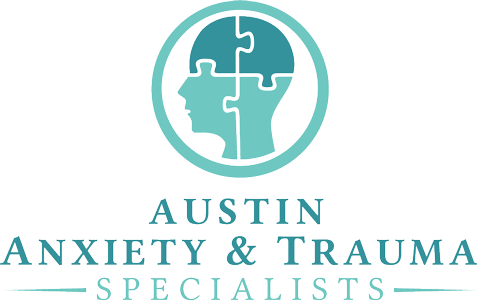Psychedelic therapy may sound like some hippy-dippy, kumbaya stuff straight out of the 60s. But as a growing number of clinical trials continue to emerge, researchers are finding that psychedelic substances like psilocybin, LSD, MDMA, and ketamine may be promising treatments for depression, anxiety, and PTSD. In a controlled setting with a clinician, that is.
Join us down the rabbit hole and we’ll explore what a psychedelic therapy session looks like, types of treatments, benefits and precautions, and legality in the United States.
What is Psychedelic Therapy?
Psychedelic therapy, or psychedelic-assisted therapy (PAP), is an alternative form of psychotherapy that uses psychedelic or hallucinogenic substances to boost the effectiveness of traditional treatments. Psychedelic substances such as LSD, psilocybin, and MDMA have a long history of use in religious and spiritual contexts. In the 1950s and 60s, researchers including Timothy Leary and Stanislav Grof conducted a number of studies on the use of LSD for psychotherapy, with some promising results. However, due to the recreational use of psychedelics and their association with counterculture movements, these substances were made illegal in the Controlled Substances Act of 1970. It wasn’t until the 1990s and 2000s that researchers began to once again explore the therapeutic potential of psychedelics.
How does it work?
Though these psychoactive drugs do not work the same for everyone, there are some potential reasons why researchers are discovering positive effects. For one, people using psychedelics may be more suggestible and more responsive to the benefits of therapy. Certain drugs also act on neurotransmitters, which may boost the patient’s mood. Additionally, the influence of psychedelics can help patients shift their mindset and reshape their belief system. This effect shows potential in assisting Cognitive Behavioral Therapy (CBT), in which patients learn to challenge and restructure negative beliefs.
Clinicians are still evaluating the effectiveness and methodology of psychedelic therapy, so the approach and dosing vary depending on the practitioner. Before the session, a therapist will likely prepare the patient with a consultation to discuss the treatment and any concerns. During a psychedelic treatment, the patient is given a dose of the psychedelic substance. The therapist is present during the experience, offering guidance and support when needed. It is important for the practitioner to set up a safe, comfortable environment to help patients feel calm and at ease, as the experience can last several hours and may involve intense emotional experiences and visual hallucinations. The session may be repeated one to two weeks later.
Types of Psychedelic Therapy
There are several different types of psychedelic therapy, each with its unique benefits and precautions. Here is a closer look at some of the most common types of psychedelic therapy:
Psilocybin Therapy
Psilocybin is the active ingredient in “magic mushrooms.” Positive results from clinical trials suggest psilocybin may be effective in reducing symptoms of depression and anxiety and hold other therapeutic potential.
LSD Therapy
LSD, or lysergic acid diethylamide, is a powerful psychedelic substance that alters perception and mood and can induce transformative experiences. LSD has been shown to help with alcohol addiction and anxiety associated with terminal illness.
MDMA Therapy
MDMA, also known as ecstasy, is a synthetic substance that produces feelings of empathy and euphoria. MDMA therapy is the first of psychedelic-assisted therapy to complete a phase 3 trial, which determines whether a treatment works better than what’s currently available. After three treatments for severe PTSD, 67% of patients no longer qualified for the diagnosis and 88% experienced reduced symptoms. According to the Multidisciplinary Association for Psychedelic Studies, FDA approval could take place by 2023.
Ketamine Therapy
Despite its typical use as an IV anesthetic, ketamine has shown significant improvement in the treatment of depression, albeit with short-term results lasting 6 to 8 weeks on average. Ketamine is currently the only legal psychedelic option for medical purposes in all 50 states.
Benefits and Risks of Psychedelic Therapy
Psychedelic therapy offers a range of potential benefits for those living with depression, anxiety, PTSD, and addiction. Here are some of the most commonly reported benefits:
- Reduced anxiety and depression symptoms
- Feelings of relaxation
- Improved mood
- Decrease in negative thinking
- Increased self-awareness, mindfulness, and self-compassion
- Improved empathy, sociability, and relationships
- Spiritual experiences
However, there are also some potential risks and precautions that need to be considered when using psychedelics for therapy. Here are a few things to keep in mind:
- The risk of triggering or worsening underlying mental health conditions, such as psychosis or bipolar disorder
- The possibility of a “bad trip,” which can cause fear, panic, and other negative moods
- The potential for physical side effects, such as nausea, vomiting, dizziness, or elevated blood pressure
- The importance of receiving treatment in a controlled setting, with a trained therapist who can help manage any negative effects
- The need for careful screening of potential patients to ensure that they are in a stable mental state and do not have any medical conditions that could be exacerbated by psychedelic use
Legal Considerations
In the United States, psychedelic therapy is currently illegal except in the context of clinical trials. Ketamine is a notable legal exception, with the number of ketamine clinics in the U.S. soaring in the past few years. This is likely due to the recent push for legalizing psychedelics for medical use, with some cities and states decriminalizing the possession and use of these substances. The FDA also granted breakthrough therapy designation to MDMA-assisted therapy in 2017 and to psilocybin-assisted therapy in 2019, indicating that they may be approved for clinical use in the near future.
Almost all psychedelic substances are illegal in Texas, and those that are legal have very strict requirements around who can perform these sessions, such as for clinical trials. Attempting to perform psychedelic therapy on your own is highly dangerous and is not condoned. While there are benefits of psychedelic therapy in controlled settings with a clinician, there are also potential risks, including triggering underlying mental health conditions, experiencing a “bad trip,” and harmful physical side effects that could require hospitalization. It is critical to receive treatment in a controlled setting with a trained therapist who can manage any negative effects.
Is Psychedelic Therapy Right For You?
For those interested in exploring psychedelic therapy and reside in one of the few legalized states, it’s important to do your research and find a qualified therapist who is trained in this type of treatment. A certified practitioner can consider your mental health history, current symptoms, and any medical conditions that might make psychedelic therapy unsafe. For more information on the legality of psychedelic therapy by state, start here.
While psychedelic therapy has gained attention for its promising results in clinical trials, it is still a relatively new approach that requires further research to establish its safety, usage, and effectiveness. In contrast, Cognitive Behavioral Therapy (CBT) is a highly researched treatment that has been proven effective in treating depression, anxiety, and PTSD. As a result, CBT remains the gold standard in the field of mental health treatment, providing patients with a safe and effective option. For more information, read this post on how CBT can help depression.
Our CBT-trained therapists at Austin Anxiety and Trauma Specialists offer online counseling to all residents of Texas. Schedule your first appointment with us and we’ll match you with a trained professional who can best help you manage anxiety, depression, PTSD, and more.
It can get better. We can help.






